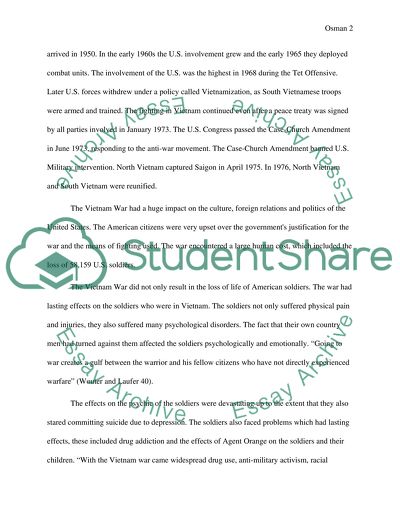Cite this document
(The Effects of the Vietnam War on American Soldiers Report, n.d.)
The Effects of the Vietnam War on American Soldiers Report. https://studentshare.org/military/1520544-the-effects-of-the-vietnam-war-on-american-soldiers
The Effects of the Vietnam War on American Soldiers Report. https://studentshare.org/military/1520544-the-effects-of-the-vietnam-war-on-american-soldiers
(The Effects of the Vietnam War on American Soldiers Report)
The Effects of the Vietnam War on American Soldiers Report. https://studentshare.org/military/1520544-the-effects-of-the-vietnam-war-on-american-soldiers.
The Effects of the Vietnam War on American Soldiers Report. https://studentshare.org/military/1520544-the-effects-of-the-vietnam-war-on-american-soldiers.
“The Effects of the Vietnam War on American Soldiers Report”. https://studentshare.org/military/1520544-the-effects-of-the-vietnam-war-on-american-soldiers.


